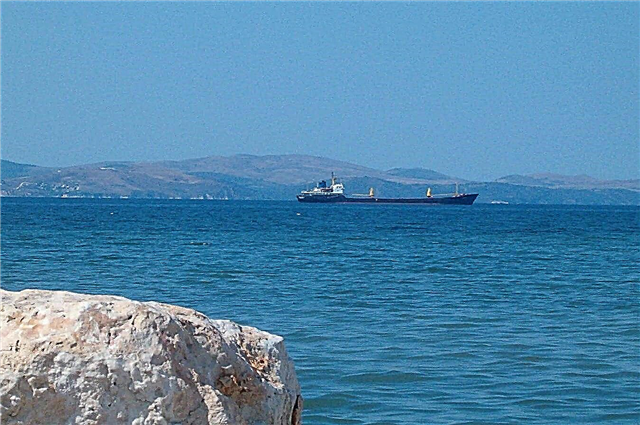
Monday, Tuesday, Wednesday, Thursday, Friday, Saturday, Sunday. The names of the days of the week are pronounced without thinking about where they came from or why they are arranged in such a sequence.
Adopted a long time before us. Let's look at historical chronicles and see how and where Sunday came from.
Week and sunday
Before the advent of Christianity, seven days were a week. This Sunday was the first in it. On this day, it was supposed to rest, do nothing, so soon, based on phrases, they were renamed weekly.

Christianity introduced changes in the name. Week of the week became Sunday. The name is based on the word “resurrect”, to which the suffix - eni is added. It is on this day of the week according to the scriptures that the resurrection of Jesus Christ occurs. Religion was very important in society, so the fact of such a renaming is quite logical. The very sequence of seven days from a week turned later in the week.
Sunday in other languages
Interestingly, the name Sunday exists among the Slavic languages only in Russian. In Belarus, Poland, the Czech Republic, the seventh day is indicated by the term “week” (grammar is different, sound is very close). In Bulgaria, the name week is used.
Religion is associated with the name of the day off in many languages of the romance group. For example, the Italian domenico took the root from the Latin domenicus - "the day of the Lord."In Indian languages, Sunday is named after the solar deities Aditya and Surya.
The sun is also present in English Sunday, transformed by time from the Old English sunnandag, which translates as "day of the Sun." The origins of this name are laid in ancient Egypt and Rome, after migrated to Germanic languages.
According to Christian traditions, Sunday is the period from Saturday evening until sunset the next day.
First official day off

Roman Emperor Constantine: "Decree: rest!". The decree of the ruler of the Roman Empire said a little differently, but the essence was precisely that. Sunday's first official day off was March 7, 321. History says that he pushed for the publication of the decree of the emperor a dream: he saw the sun with a cross and an inscription on victory in the upcoming battle. And so it happened: the army of Constantine won. He recalled the vision after the battle and issued a decree.
On Sun Day, government agencies and markets were forbidden to work. But agricultural labor did not fall under the veto. Theodosius the First added restrictions after half a century: it is impossible to demand payment of personal or state debt on weekends. Theodosius the second forbade to arrange theatrical, circus performances (425 year). The ban on physical labor in rural areas was proclaimed only in 538 at the third Synod, held in Orleans.
Bible Commandments and Modern Realities
Looking into history even in earlier periods, we can see that even before the decree of Constantine, the Bible indicated the need to rest on the seventh day. Having created the world in 6 days, the Lord rested on the 7th day and ordered everyone to do it.Therefore, the Bible can be called the first code where the day off is registered. True, this is the fourth commandment - on the observance of the Sabbath, not Sunday.
The ban was absolute. The Jews, who were driven into the Roman Empire to build the Coliseum, refused to work. As a result, it was allowed to do all the work in 6 days, and rest on the 7th.
When did Sunday become a day off in Russia?
Sunday was soon in Orthodox Russia. Official bans were first introduced only in the XVII century. It was finally fixed later that: the first general day off on Sunday in the Russian Empire on July 14, 1897.
The international standard ISO 8601 established: Sunday - the last day of the week. An exception in the USA, Israel and some African countries when a week begins with it, to which there is a logical explanation - the historical facts cited above. The first edition of the document was adopted in 1988. At the same time, the standard provides non-binding requirements, but recommends the use of the date and time formats described in it. The current (third) edition was adopted in 2004.
A religious trace can be traced both in the name of Sunday Sunday, and in what is a day off. Jesus was resurrected on the third day after the crucifixion, in honor of this event and the day was named. The Lord told us to rest on the seventh day. International Standard recommends that Sunday be considered the last day of the week.












